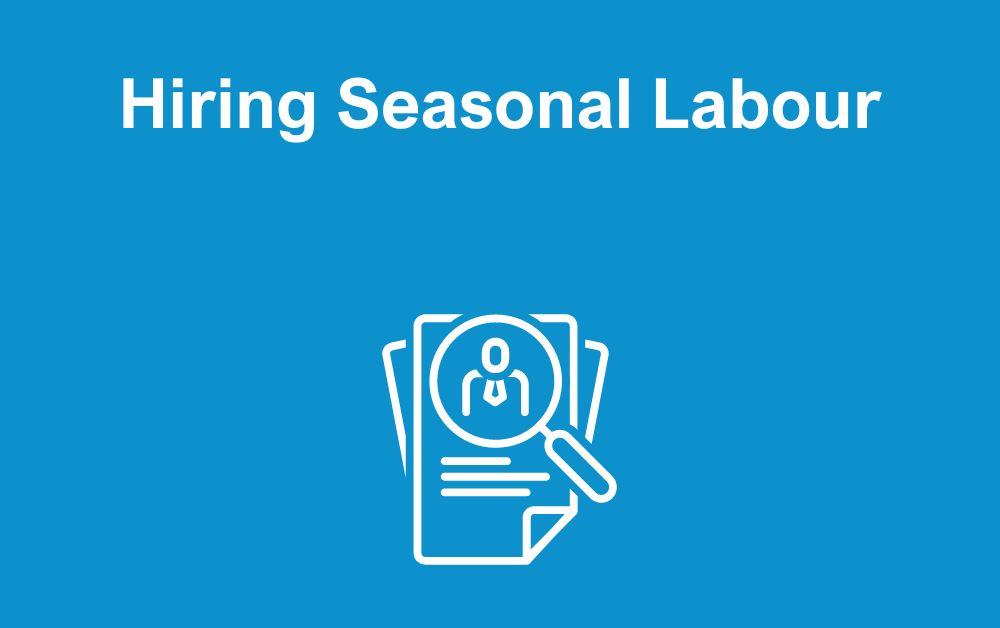Ensure your seasonal recruitment process is as robust as your permanent one
That time of year is fast approaching when the Christmas shoppers step out in force and the phones don’t stop ringing. Many businesses will find Christmas to be their busiest time of year, which generally means hiring more staff.
Seasonal labour is a wonderful way of hiring in help when it is needed, before reverting back to your original staff numbers come to the New Year. However, there are things to consider when recruiting seasonal labourers. We’ve put together a simple guide to all the different approaches to take, and avenues to consider when hiring seasonal labour.
A Robust Recruitment Process
It is important to consider your recruitment approach when hiring temporary workers, as you want to ensure you attract and hire the right people. Your recruitment approach needs to be as robust as it would for full-time and permanent members of staff, even if you will only be hiring people for a matter of weeks or months.
Ensure that you have a well-written job advertisement, complete with in-depth information about the roles and responsibilities, in order to attract the right calibre of candidates. Also, make sure that you sift through CVs and application forms thoroughly, before the interview process. Imagine you are hiring these people for a more permanent role, and what you would be expecting of candidates in this position, to be sure that your seasonal labour is up to scratch. It may be worth utilising an HR expert or recruitment manager to help you through this process if this busy time of year doesn’t leave you much of a chance to do it yourself.
Plan Well in Advance
Despite knowing when Christmas is, it always seems to creep up on us; it can then be difficult to find the right seasonal labour in time. All of the most qualified people have been taken months in advance, which leaves you with a very limited pool of candidates to choose from. It’s always best to plan well in advance when it comes to hiring for your busiest times. This applies to all industries and during any ‘busy periods’, such as summer for travel companies.
In order to attract the right seasonal staff, make sure you’re thinking about your recruitment plan several months before you need to hire. You can also start marketing positions a couple of months in advance, which gives you time to go through applications and get interviews completed. This way, you can be the company with the best seasonal labour and your competitors will be left floundering.
Know the Law
It’s important to understand the laws surrounding seasonal employment
It is vitally important that you understand the laws surrounding temporary staff, especially if this is your first time hiring extra help. Will you be hiring agency staff or will they be sourced directly from you? What type of contract will be provided to your seasonal employees? Will you be providing temporary workers with family rights (maternity/paternity leave) or holiday pay? These are all important things which need to be ascertained before you start the recruitment process, and potentially land yourself in hot water.
Permanent employees and seasonal labour do have different rights, contracts and laws surrounding their terms of employment, so it is good to brush up on your knowledge. You can either seek the advice of an HR consultant, who can tell you everything you need to know or speak to your in-house HR team for more information. Either way, it is imperative that you know where your business and your seasonal labourers stand in the eyes of the law.
Hiring seasonal labour is an excellent way to give your business a boost during its busiest times; whether that is Christmas, Easter or the summer holidays. Just ensure you understand the different approaches to taking on temporary staff, along with the legalities involved. This way you can ensure you have the best seasonal employees, who may even come back year after year. Contact us at The HR Booth for more information.







